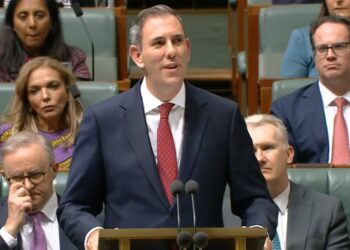Speaking on an industry panel at the Financial Services Council (FSC) Future of Advice seminar, AMP Australia acting chief executive Blair Vernon, former adviser and finance commentator Glen James and PwC partner of financial services and consumer business leader Nicole Salimbeni weighed up regulatory standards facing advisers.
The discussion followed the launch of a report from the FSC and Rice Warner, calling for a restructure of the advice model and reforms including less documentation, new definitions of advice, tax deductibility for advice and less costly compliance.
All three industry experts agreed the levels of regulation around advice are obscuring its delivery and making it less accessible.
Mr James, who is now host of the My Millenial Money podcast, said it is promising that Assistant Minister for Financial Services Jane Hume has acknowledged the excessive red tape facing the industry.
“I believe it’s over the last 20 years all these little add-on bits of legislation and compliance – the complexity thing that’s happening now in advice land, is we’ve reached the tipping point and we can’t just add another layer on,” he said.
“We have to strip back and rebuild the ladder.”
As advice transitions into being a profession, with the FASEA ethics standards, Mr James added regulations should be eased to allow an element of trust.
“Ten, 20 years ago, it was the view that, regulation, we don’t trust advisers so you have to do this, this, this,” he said.
“I think now the line in the sand is there with FASEA, that no we are moving into a profession so there needs to be that trust back onto the adviser, you need to take accountability, you are the professional. We’ve weeded out the cowboys and cowgirls and all that stuff.”
Mr Vernon said there is a strain between delivering advice and meeting compliance standards.
“There is that tension between how do we stick with the purpose of what we as an industry want to be about, in terms of helping clients, but still meet those obligations,” he said.
“I don’t think as Glen said, we’ve got the pendulum in the right setting at the moment. And so that said, I think it would be a reticence to say let’s just do wholesale change from where we are, because there’s still a challenge around how do we reach through to those new standards that FASEA is taking us towards.
“We’ve been in a challenging 18 months. I still think we’ve still got a challenging 12 to 24 months ahead of us, as we work through this.”
‘Industry is still very fractured’
Ms Hume has pointed to technology and potentially robo-advice as a potential solution for the issues around advice accessibility.
But the AMP Australia acting CEO pointed to issues around industry tech, despite it being hailed as a solution for to take friction out of the advice process.
“The challenge for tech is, you’re building it for a really complex legislative environment anyway, so that makes the scene challenging, particularly when you’re deploying it in an industry which has fundamentally been born out of personal interaction,” Mr Vernon said.
“I think the other thing we need to recognise is, the industry is still very fractured,” he later added.
“I mean the technology solutions are abound in terms of options and it’s another set of challenges for advisers and licensees in fact, in terms of which choice do you make, the cost of uplift and transition is huge.
“And in many cases, clients aren’t super keen on it either. We’ve had lots of experience in our business, and others I know are trying to deploy technology to make some parts of the process efficient. Some clients are into that. Most of them aren’t.”
Ms Salimbeni spoke around the complexity created by disclosure and documentation obligations, particularly when meeting the requirements of providing personal advice. Some of the regulation advisers are facing, including the delineation between personal and general advice, is more than 20 years old, she noted.
“Those disclosure requirements trigger a whole heap of complexity in our financial advice system and a lot of cost associated with that complexity,” Ms Salimbeni said.
She commented that consumers go to advisers for help to navigate their financial circumstances.
“I don’t think disclosure is actually the right way to be helping them understand advice and going to help them make decisions about their future. So I think it needs fundamental change,” Ms Salimbeni said.
“I was talking to an adviser the other day and he said to me, ‘Nicole, I spend so much time just documenting stuff. Four times, I have to document stuff to give advice’. And so with that comes complexity.
“I do a lot of work in the compliance space and the cost of compliance is huge. Because when we’ve got this regime where we default to looking at file reviews as a way of measuring compliance and now we’re documenting things manually four times – well guess what, things change over the course … and it’s all just creating issues in the industry.”




It’s very simple. Provide the client a statement of advice, and every time you do a SoA/RoA, you disclose your on-going fees. But now grandfathering has ended, “Opt-Ins” have to be changed to Opt-Outs, if small retail clients are to get any serious service support. Otherwise ongoing intrafund advice fees have to go. To have a level playing field, it is simply impossible to have both operating at the same time, without massive market distortion. End of story.
Not to mention now the soon to be legislated requirement to have clients sign yet another agreement so an adviser can get paid off the super and in some cases investment platform (thanks for nothing BT). Oh please, pleeeease can I get paid for my work? Letter of engagement, opt in, soon to be annual renewal, application stating advice fees will be paid from the super fund, ongoing service agreement. Give me a break. We should all just work at ASIC or their mates the ISFs so all that is required is to stick your card in the wall and the money drop out. It s a disgrace and the useless FPA and AFA are doing nothing about it.
Sure, its extremely frustrating. But ironically, the compliance is this strict due to companies like AMP and their previous ‘advice’
Exactly – its not even the advisers that are the problem but the vertically integrated Licensees who put profit before people! Redirect the legislation towards the Licensees and let us advisers get on with doing our jobs!
So everyone has spent an excessive amount of time studying and changing how they operate in order to be a professional only to be replaced with Robo advice as the Government now are saying people’s needs aren’t complex??? So which one is it???
So AMP admits that their roboadvice is a failure as most clients wont engage with it even if and when it is operational (AMP failed to deliver any meaningful IT project to date), yet AMP terminated a whole heap of highly professional advisers, poaching their clients, now having to recruit in house advisers as it can’t service the clients it poached.
Not that I expect this comment to be released as the IFA’s editors seem hell bent on blocking everything I say lately but while we have a regulator running things, that is so biased to left its now become an absolute disaster, the enormous compliance burden advisers (and consumers indirectly now) will always be an issue.
The left are obsessed with treating people like 5-year children who can’t think for themselves and who aren’t responsible for anything they do so they do everything they can to pin all blame on the advisers for anything that goes wrong, or could even ‘potentially’ go wrong even – if it hasn’t! You only have to look at Daniel Andrews behaviour the last six months to realise this mantra.
ASIC are an absolute joke, as are FASEA.
I’m so depressed about the future of this industry and my ability to continue doing work for my clients, I’m almost paralysed with fear now that every action I take for a client will now be judged as a compliance breach.
Listening Jane?